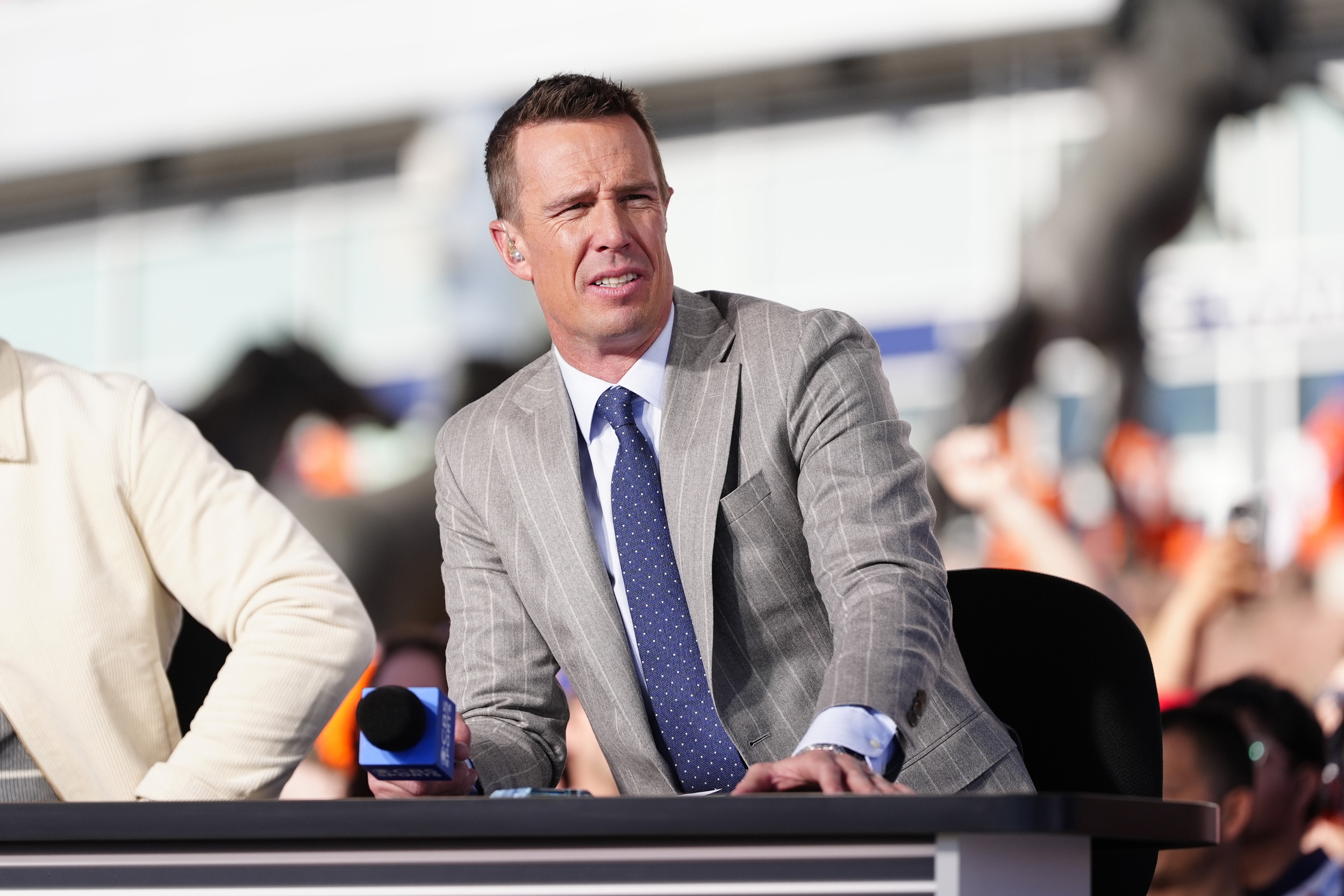Derek Jeter announced his retirement last week from Major League Baseball, in which he will call it quits at the conclusion of the 2014 season. Everyone knows that Jeter is one of the more decorated MLB shortstops of all time. He is a 13-time All-Star. He has five Silver Slugger Awards. He has five Gold Glove Awards. He played for the Yankees during their recent resurgence, in which he has earned five World Series rings. He was widely known for his philanthropic work. When he was called upon to act in movies and television, he was able to poke fun of himself. He even played older brother to Minotaur-loving Alex Rodriguez. But what he is mostly known for are his continuous clutch hits and great fielding during the playoffs, so much so that it garnered him the nickname of Mr. November.
Yet, not everyone is sold on Jeter’s prowess on the field. Time and again Jeter found himself playing Johnnie Cochran for his defensive skills, most notably his fielding range. Although he shrugged off the negative criticism as a part of playing in New York, Jeter could never escape it. But, beyond that, what truly made Jeter famous and unforgettable? What put him in the discussion for best shortstop of all time? What made him possibly the most overrated baseball player of all time? In the quickest answer possible – not playing for the Houston Astros.
Coming out of high school, Jeter was a widely known, poised-beyond-his-years shortstop from Michigan. He was the Gatorade High School Player of the Year. He was heavily recruited by Michigan University, and pretty soon he had the caught the eye of most teams drafting in the first round of the MLB Amateur draft. Hal Newhouser, who was a scout with the Houston Astros at the time, was so sure of his future success that he quit his job with the Astros after they selected Phil Nevin instead of Jeter.
Jeter spent four seasons in the minors, which is somewhat typical for baseball. However, it took him awhile to get his bat going. Also working against him was his defense. In just 126 games, he committed 56 errors and owned an embarrassingly low .889 fielding percentage – which is the equivalent of typing with gloves on. However, even with his awful mitten defensive skills, Jeter still took home the league’s award for best defensive shortstop. The receipt of that award became a disturbingly annoying trend to many in the sabremetric field.
Upon reaching the majors, Jeter did have to play in front of raucous New York crowds. And not only that, when on the road – and even though there are displaced Yankee fans across the country – they still were the Evil Empire when walking into a stadium. But, nonetheless, he played on the Yankees. He had protection everywhere he turned. In the lineup, he got to hit in front of guys like Bernie Williams, Paul O’Neill, Tino Martinez, Jorge Posada, Jason Giambi, Gary Sheffield, Alex Rodriguez, Mark Teixeira, Robinson Cano, Hideki Matsui and a plethora of veterans giving it their last shot as part timers (including Tim Raines, Todd Zeile, David Justice, Glenallen Hill, and so on). Obviously, the pockets were lined deep in New York. And Jeter reaped the benefits. In the end, who would you rather pitch to? Derek Jeter or a roided up Jason Giambi with Jeter possibly on? It’s an easy answer, statistically or not.
Whether you want to believe Jeter was the benefactor of a ridiculous lineup for nearly two decades is up to you. Some of those seasons he had 40+ home run guys hitting in the lower third of the Yankees’ lineups. And yet with all of that help behind him, and netting 700+ plate appearances in 10 different seasons – five of which he led the league – Jeter only led the league in runs one time. Once. He led the league in hits just two times. He never accumulated 100+ walks. He never led the league in any other major statistical category. Combine that with the fact that Jeter has had only one season in which his UZR rating, which measures the amount of runs you save your team, was above zero, it’s amazing to know that he still finished in the top ten of MVP voting eight different times. Bill James even famously once said Jeter was “the most ineffective defensive player in the major leagues, at any position.” To put it politely, Jeter as an anomaly in the sabermetric community.
But Jeter also was more than just the Paris Hilton of baseball. He didn’t inherit a wealth of statistics and awards because of the players that followed him in the lineup. He still had to perform. He still ranks 10th all time on the hits list. And more often than not, he performed better on the big stage than in the regular season. This is how he earned his other nickname – Captain Clutch. He is currently sitting at a postseason slash line of .308/.374/.465, which is nearly identical to his career statistics. He has numerous notable postseason plays that players could only wish for. Yet, some could argue that anyone with a season’s worth of postseason games under their belt will probably have one or two of these standout plays. Healthy consistency was another benefit afforded to Jeter. But is that not a sign of greatness?
According to Baseball Reference’s Similarity Score, Jeter compares most closely to Craig Biggio. If you remember, Biggio was up for the Hall of Fame this year and failed to make it. No one argues Biggio’s greatness, but he didn’t get in. Yet, Jeter will get in his first time around. And he’ll get in with ease. That’s the disparity between playing in Houston and playing in New York. In one city you win multiple championships, date Hollywood actresses, and garner top-10 MVP votes – in the other, you may get a barbecue named after you.
To combat the stat geeks, Jeter does own the 21st best offensive career WAR. He’s sandwiched on that list by Jimmie Foxx and Eddie Matthews. And the only people sitting above him on that list with fewer seasons played are Lou Gehrig, Ted Williams, and Mickey Mantle. But it’s hard to look past the help he received offensively in the lineup behind him. It’s hard to ignore the deep pockets of the Yankees, which afforded Jeter with relief in the form of 15+ game winners, veteran bench depth, the best closer of all time, and intelligent managers – all of which are necessary for long postseason runs. So even though Jeter’s career aligned with the aforementioned Yankee resurgence, he wasn’t necessarily the catalyst.
In short, is Derek Jeter overrated? Absolutely. Statistically compared to other Hall of Fame shortstops, he barely cracks the top 15 all time. Had he not played for nearly two decades for the winningest team of all-time (of any sport) he’d be lower on the list. But, is he better than Craig Biggio? Absolutely. He performed in the postseason the same as he did in the regular season, if not better. And he did so with consistency over an extended period of time. However, he did so with help. And lots of help. So, how overrated is Derek Jeter? Very. But with a caveat. Due to how he is heralded in the baseball community, Jeter is definitely one of the most overrated baseball players of all time.
[Fansided, MLB, Baseball Reference, Baseball Reference]







About Andrew Conway
Recent Posts
Kevin Durants plans on suiting up for US again
"Hell yeah, I want to play."
Eileen Gu snags 6th Olympic medal
"She is 'Wonder Woman,'"
Matt Ryan breaks silence on Falcons quarterback
"He’s in a good place right now."
Jayden Daniels loves Philly fans
“I love Eagles fans."
Ben Roethlisberger responds to attack on character
"I like to think as we mature and as we grow in our faith."
Tyreek Hill bids Miami farewell
“Major Love to the 305.”